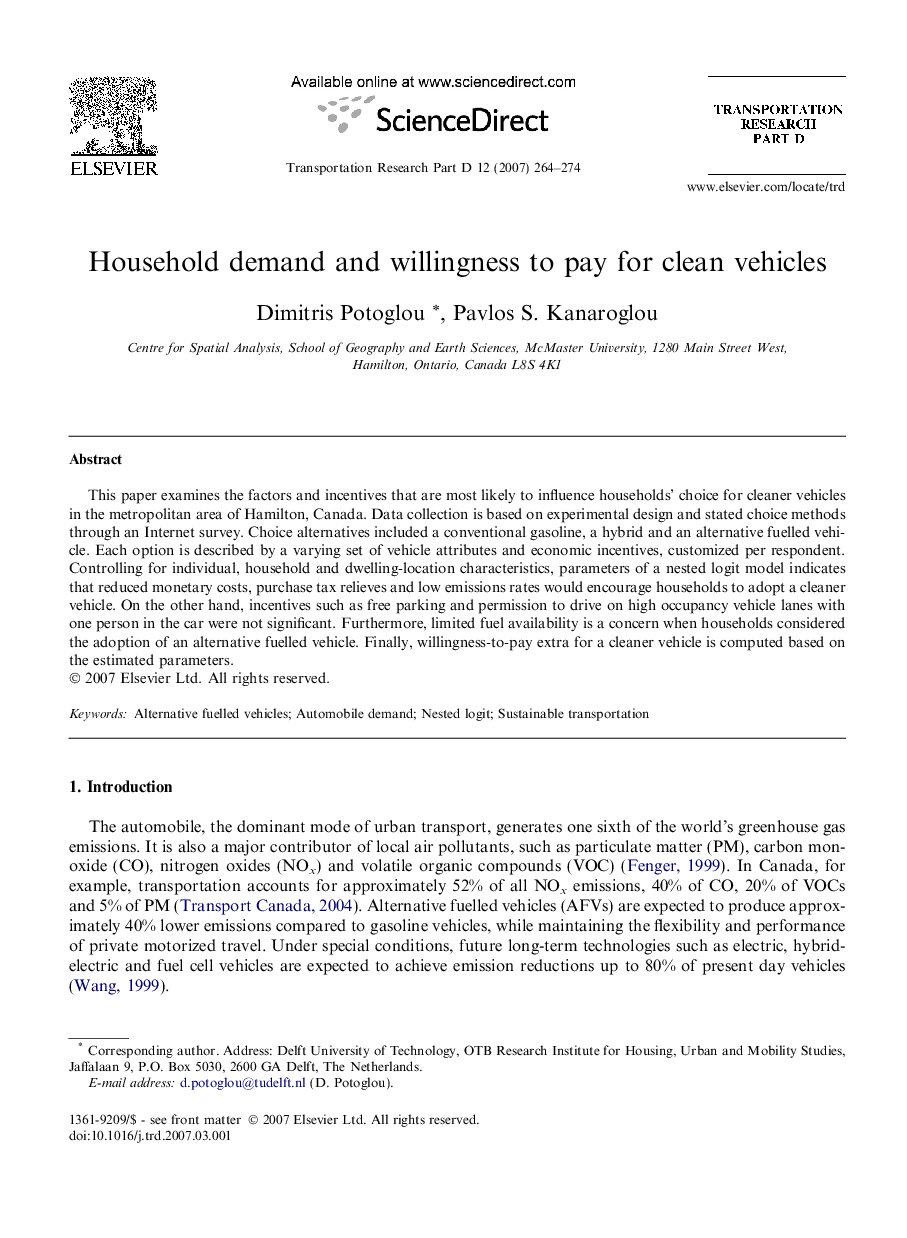| Article ID | Journal | Published Year | Pages | File Type |
|---|---|---|---|---|
| 1066230 | Transportation Research Part D: Transport and Environment | 2007 | 11 Pages |
This paper examines the factors and incentives that are most likely to influence households’ choice for cleaner vehicles in the metropolitan area of Hamilton, Canada. Data collection is based on experimental design and stated choice methods through an Internet survey. Choice alternatives included a conventional gasoline, a hybrid and an alternative fuelled vehicle. Each option is described by a varying set of vehicle attributes and economic incentives, customized per respondent. Controlling for individual, household and dwelling-location characteristics, parameters of a nested logit model indicates that reduced monetary costs, purchase tax relieves and low emissions rates would encourage households to adopt a cleaner vehicle. On the other hand, incentives such as free parking and permission to drive on high occupancy vehicle lanes with one person in the car were not significant. Furthermore, limited fuel availability is a concern when households considered the adoption of an alternative fuelled vehicle. Finally, willingness-to-pay extra for a cleaner vehicle is computed based on the estimated parameters.
